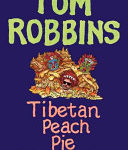
Even the most ardent admirers of Greil Marcus will no doubt admit his writing can be too dense for its own good, but that’s understandable given that his chosen topics, including Bob Dylan, The Band and The Doors, are open to almost endless interpretation rife with meaning, as personalities alone as much as their singular art.
Van Morrison, the subject of the cryptically title When That Rough God Goes Riding (one of the Belfast Cowboy’s own songs), is no less appropriate fodder for Marcus’s’ musings. The longevity of Morrison’s career, the erratic quality of his recorded and live work, not to mention the unpredictable nature of his temperament, make him an almost ideal, nay inevitable, source for Marcus’ complex observations. .
Yet this book ultimately becomes the ideal starting point to read the Berkeley author, precisely because its focus is so narrow. Listening to Van Morrison is Greil Marcus’ largely successful attempt to explicate and demonstrate the root of Van Morrison’s drive to create, that is, to attain that spiritual/metaphysical state where the force of the music is so great, it overwhelms the artist himself, to the point the song(s) sing the man rather than the other way around.
Scholar that he is, Marcus traverses the scope of Van Morrison’s career, going back beyond his early days in them where tunes such as “Mystic Eyes” garnered the group a middle level of recognition in the wave of early-to-mid-Sixties British bands. The author is no less unsentimental than Morrison himself in moving beyond that ensemble, (in later years a motley group of accompanists to the titular leader), to a solo career that, established early on with the success of the halcyon FM radio staple “Brown-eyed Girl,” had its future enterprises along those lines almost immediately capsized by Van Morrison’s surrender to the muse that gave birth to Astral Weeks.
It’s here that, in quoting the engineer, Brooks Arthur, and producer Lew Merenstein, Greil Marcus suggests just how powerful is the highest level(s) of inspiration that overtake Morrison. At this juncture too, in offhandedly dismissing as cartoons most of the songs on the album Tupelo Honey, the author homes in on the prototype of that evanescent moment Morrison-and by extension, his most loyal and understanding fans-longs for. Blow-by-blow accounts of singing and playing can be cumbersome even from a writer as skilled as Greil Marcus, but his account of the buildup of tension and release in this recording drums up the suspense of an expert mystery novel or work of cinema.
The cumulative momentum of this book as a whole grows in much the same way in large measure because Marcus leaves almost as much implicit as explicit in his recounting of the path Van Morrison’s taken through his career. Yet at the two thirds mark of Rough God, the momentum begins to dissipate as Marcus makes credible but nonetheless tenuous connections between other works of art such as films and live performances of Morrison’s songs by other artists: this veteran writer’s stature is certainly such that editing of his work is no doubt minimal, but even though most of what’s written here will provoke the reader to return to and rediscover the music of Van Morrison, there is a point where an academic approach can border on the fanboy mentality, albeit in an exalted scholarly form.
The dismissal of such a significant chunk of the man’s work from the Eighties into the mid-Nineties and beyond reads too casually for its own good, especially given the almost excruciating level of detail in which the author listens to and dissects some individual songs such as “Friday’s Child” and “Sweet Thing.” (not that Greil Marcus is any less forgiving than the artist himself, who’s quoted expressing more than a modicum of bitter candor regarding some of his work). Perhaps if the book were more comprehensive in at least making mention of more entries or arbitrarily delineated phases of Morrison’s discography, the perspective would be clearer.
That said, to conclude the book with the suggestion that a dozen instances of “mystical deliverance” the likes of which form the premise of Rough God Goes Riding may be the extent of Van Morrison’s distinction belies the pleasure Greil Marcus takes not just in those extraordinary moments, but the process by which he has searched, encountered and relished them. His passion resonates more deeply throughout this book than his cerebral overthinking occasionally irritates.



No Comments comments associated with this post